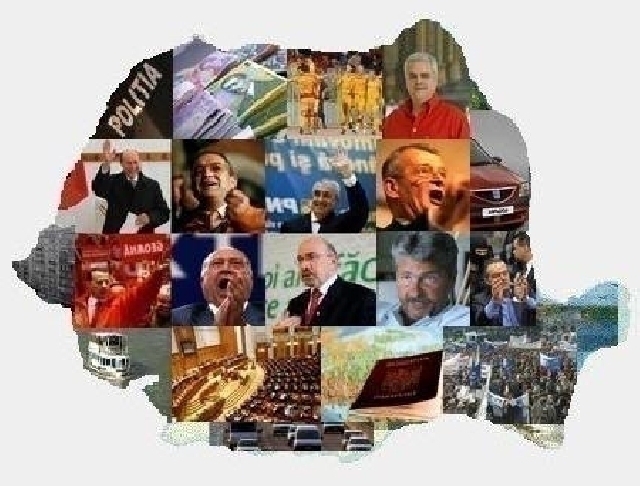The Week in Review 26.01-1.02
A roundup of the week's main stories

România Internațional, 31.01.2015, 14:08
Romania’s foreign lenders look at the country’s progress under a stand-by loan agreement
A mission of the International Monetary Fund, the European Commission and the World Bank is in Bucharest for the third assessment of Romania’s ongoing precautionary loan agreement, worth 2 billion euros. Until February the 2nd, the international experts are discussing with the Romanian authorities the recent economic developments and the priorities of economic reform. The visit comes at a time when the Swiss franc has reached a record-high exchange rate against the Romanian leu, creating panic among the nearly 75,000 Romanians who have taken out loans in this currency. This has also prompted Parliament to consider endorsing a law on personal bankruptcy. The International Monetary Fund has already sent a letter to the Romanian authorities, voicing concern over the endorsement of such a law without an adequate impact assessment.
Romanian Intelligence Service chief resigns
Romania’s main intelligence services are at present without its civilian chiefs. After Teodor Melescanu stepped down as head of the Foreign Intelligence Service in October 2014 and Tuesday’s resignation of George Maior from the Romanian Intelligence Service, the two bodies now have two generals as interim leaders. As a NATO member state, Romania is obliged to have its intelligence services under democratic, civilian control, which is why new chiefs will have to be appointed as soon as possible. In the meantime, George Maior’s resignation, for which no official explanation was given, has generated much rumour and speculation. Most commentators believe the decision was prompted by the Constitutional Court dismissing the so-called “Big Brother” laws, a package of three bills on security, which Maior strongly supported. The package referred to cyber security, the retention of user data by providers of communications services for a period of six months and the sale of prepaid mobile telephone cards.
Top-level corruption investigations continue
The National Anti-Corruption Directorate once again made the headlines in Romania this week. After hours of hearings, the MP, former minister and former presidential candidate Elena Udrea has been placed under legal restrictions pending trial, in a case involving an IT license fraud. She is accused of having obtained and used goods that she knew they came from illegal operations conducted by her former husband, businessman Dorin Cocos. His son, Alin, is also charged with bribe giving and influence peddling and is detained in a separate case involving the former chief of the Directorate for Organised Crime and Terrorism Investigations, Alina Bica. Fresh light was shed on the web of corruption around Alina Bica on Thursday, when the former economy minister Adriean Videanu was arrested as well, as accessory to abuse of office. Also on Thursday, the National Anti-corruption Directorate heard the Constitutional Court judge Toni Grebla, who is accused of influence peddling.
The European Commission publishes report on Romania under the Cooperation and Verification Mechanism
The European Commission hailed the activity of the National Anti-Corruption Directorate, the National Integrity Agency, the High Court of Cassation and Justice and the Supreme Council of Magistracy with regard to the fight against corruption and the reform of the judiciary. The 2014 report under the Cooperation and Verification Mechanism published on Wednesday in Brussels speaks about corruption investigations leading to the arrest of high-profile figures in the administration and the political scene, as well as the way in which the aforementioned institutions stood their ground when faced with political pressure. On the other hand, the report criticises Parliament for blocking the start of criminal investigations against some of its members, promoting laws that hinder the fight against corruption and delaying the adoption of laws to help the judiciary. During talks with president Klaus Iohannis, the representatives of all parliamentary parties said they are willing to simplify the procedures related to Parliament’s approval of requests to detain, arrest and search members of Parliament. “It’s time for Romania to enter a new stage of the democratic process”, said president Klaus Iohannis. He spoke about resetting the whole system, including the improvement of the voting process for all Romanians, following last November’s elections, when many Romanian voters living abroad were unable to cast their votes because of the bad management of the election process.
President Klaus Iohannis outlines his main foreign policy goals
Joining the Schengen area and adopting the euro are the major goals of Romania’s foreign policy, said president Klaus Iohannis in a meeting with foreign ambassadors to Bucharest. The country’s priorities remain largely the same and include Romania’s full Europeanisation, a strong strategic partnership with the United States and further support for the young democracies in the region: the Republic of Moldova, Ukraine and Georgia. President Klaus Iohannis said Romania’s relationship with the Russian Federation is affected by the crisis in Ukraine and improving it requires Moscow’s compliance with international law. In an EU foreign ministers’ meeting in Brussels on Thursday, Romania’s foreign minister Bogdan Aurescu called for the extension by another six months of the Union’s sanctions against Russia.





























